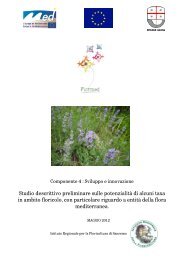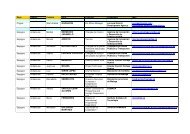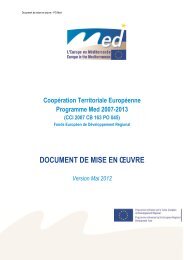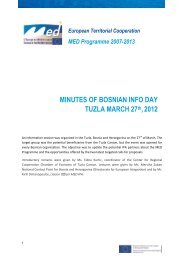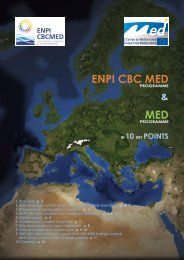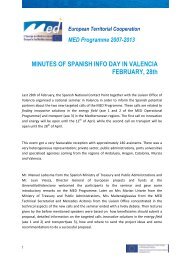MED Communication Handbook - Programme Med
MED Communication Handbook - Programme Med
MED Communication Handbook - Programme Med
Create successful ePaper yourself
Turn your PDF publications into a flip-book with our unique Google optimized e-Paper software.
. Hands<br />
c. Visual aid<br />
d. Charts<br />
e. Recordings<br />
f. Video<br />
10. Use repetition and redundancy<br />
Attention and interest: It takes more than a snappy introduction to maintain<br />
interest, and you have to do more than just talk. Too much uninterrupted talk can<br />
lead to boredom even if your information is first class. Depending how alert your<br />
audience is, you will need to intervene to stop them wandering off at least once a<br />
minute, if you want undivided attention – which of course you do. Show a visual,<br />
tell a story, use a prop, move around, change the tone of your voice, change the<br />
pace, ask the audience to do something, write on a flip chart or demonstrate a<br />
process.<br />
Following are some useful tactics for maintaining attention.<br />
1. Activity or movement: lively behaviour and treatment of the content that<br />
makes it appear as if something is actually happening.<br />
2. Reality: reference to actual people, events, places; being specific and<br />
concrete rather than abstract.<br />
3. Proximity – drawing on what is close at hand; people in the room, current<br />
events, local references.<br />
4. Familiarity – the use of recognised examples, well-known phrases,<br />
commonplace events.<br />
5. Novelty – the opposite of the familiar; startling facts, odd turns of phrase,<br />
surprising images, unusual combinations.<br />
6. Suspense – creating curiosity about what will happen next. Posing puzzles or<br />
provocative questions.<br />
7. Conflict – setting up pros and cons, opposing viewpoints, competing schools<br />
of thought.<br />
8. Humour – playful remarks, silly or exaggerated images, amusing plays on<br />
words, ironic twists of fate, entertaining stories.<br />
9. Vital self interest – something that is important to listeners. Matters of<br />
survival, or saving them time, earning money, making life more pleasant.<br />
Keep the audience involved<br />
� Use the names of people in the audience<br />
� Refer to the immediate setting or shared experience.<br />
� Use concrete examples rather than hypothetical ones to illustrate a point.<br />
� Ask questions, ask for a show of hands or a straw poll<br />
� Ask rhetorical questions<br />
� Ask listeners to visualise examples<br />
� Use the word “You”.<br />
� You’ve probably seen<br />
� Do you sometimes wonder<br />
� In your morning paper<br />
� “Has this ever happened to you…”<br />
13<br />
� Factsheet 12: Presentations and Speeches<br />
�



